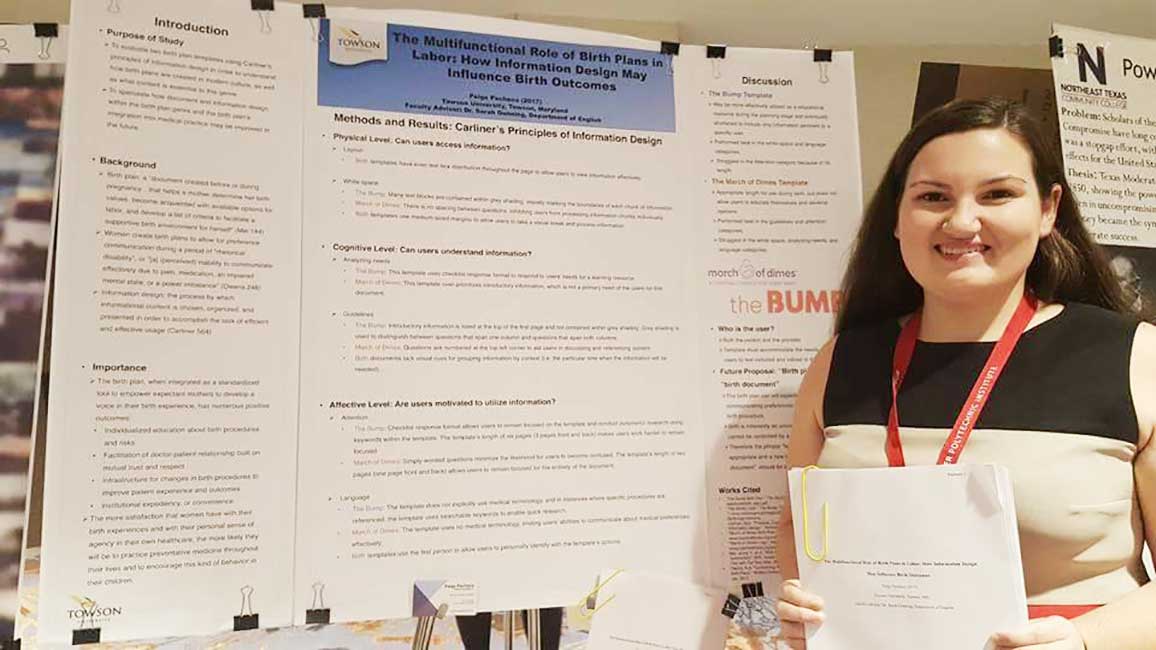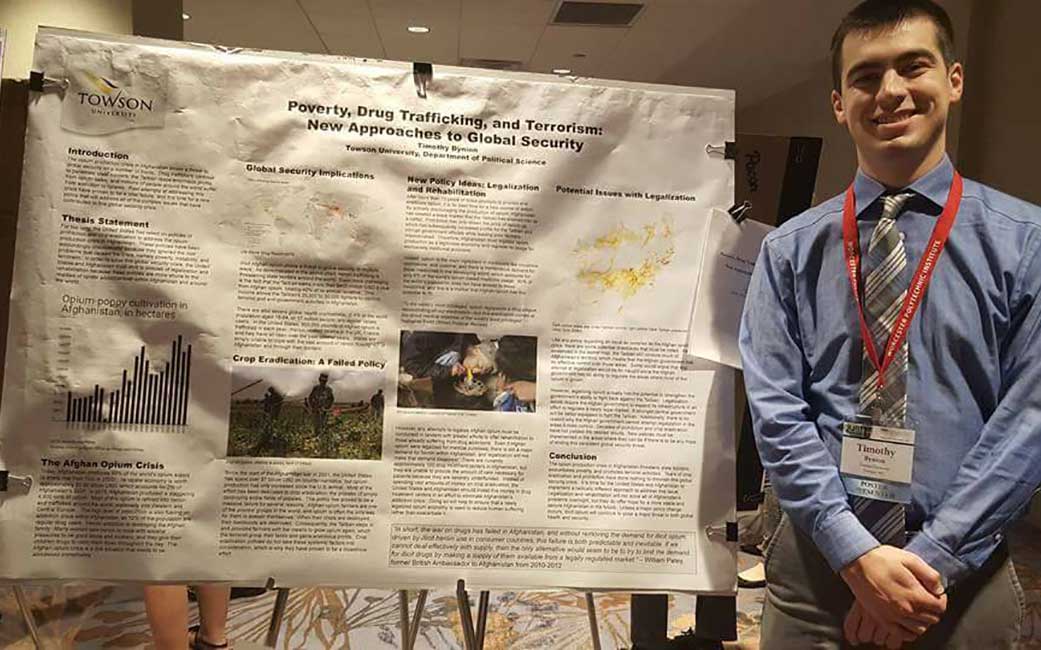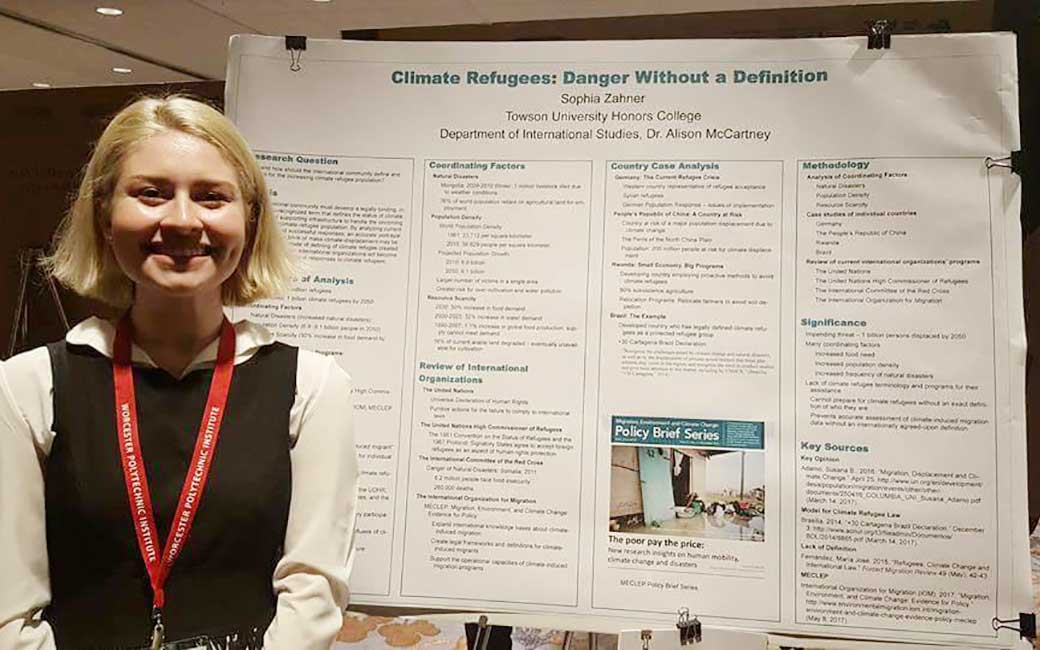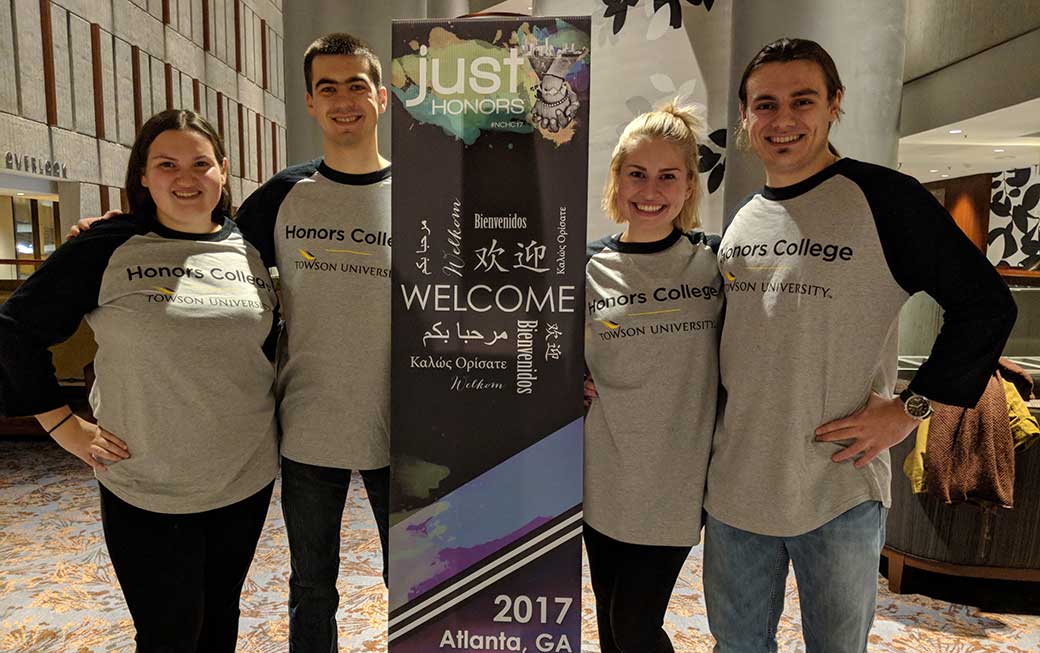
Presenting Research...With Honors
Honors College students Paige Pacheco, Timothy Bynion, Sophia Zahner, and Ruhley Michaelides presented at the 2017 National Collegiate Honors Council annual conference.
By Rio Napoli, Honors College on February 16, 2018
Four Towson University Honors College students presented their research at the 52nd-annual National Collegiate Honors Council conference Atlanta, Georgia this past fall. Honors College Weekly sat down with Sophia Zahner and Timothy Bynion to discuss their experience and hear their tips for presenting on a national stage. The article is abridged.
Describe your research project or presentation? Why did you choose this topic? Who was your faculty mentor?
Sophia: My research was on climate refugees and the world’s current lack of political preparation for them. By 2050, the UN Refugee Agency (UNHCR) estimates 250 million to one billion climate refugees will be displaced. Without adequate policy, the world will struggle to handle this major issue, particularly in respect to the human rights of the displaced. I chose this topic because it is an often-overlooked aspect of the global refugee problem.
Tim: My project was entitled “Poverty, Drug, Trafficking, and Terrorism: New Approaches to Global Security.” The goal was to examine the opium production crisis in Afghanistan and understand why past attempts to solve this problem have failed so miserably, ultimately providing a new solution that took into account all of the factors mentioned in the project's title. The project was based off of work I had done in Dr. Alison McCartney's class, Contemporary International Politics. She was also my faculty mentor.
What was the conference like? What did you enjoy about it?
Sophia: It was amazing. It was exciting to meet other people performing research in the same area as me, as well as professionals working in the field. My favorite moment was meeting someone who worked with climate refugees in Nepal and advocated for them at the UN. Being able to talk policy with someone in the field was super-exciting and reaffirmed both my research and my interest in international studies.
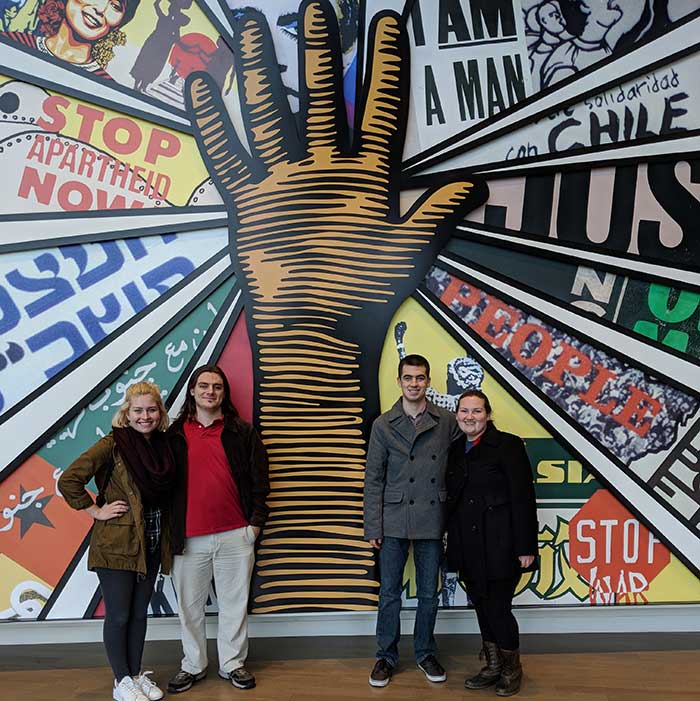
Tim: The conference was a lot of fun. I enjoyed getting to attend several panels on topics that I did not know a lot about beforehand. We also got the chance to engage in some fun conversations with the panelists. I also very much enjoyed getting to explore Atlanta during our free time! From the Coca-Cola factory to the first Chick-fil-a, Atlanta provided us with lots of exciting sights to see.
What was it like presenting your research or project in front of hundreds of other students/faculty/staff from other schools around the country?
Tim: At first, I was nervous to have my work scrutinized by a bunch of total strangers, but once I started having conversations with people about my work, the nerves went away. In fact, it was refreshing to hear people critically evaluate my poster and offer me some helpful tips or areas of research I had not previously considered. The presentation also helped me improve my public speaking skills because I had to respond to questions quickly and accurately and fit a large body of work into a short amount of time.
Do you have any tips for other students regarding how to present your research successfully?
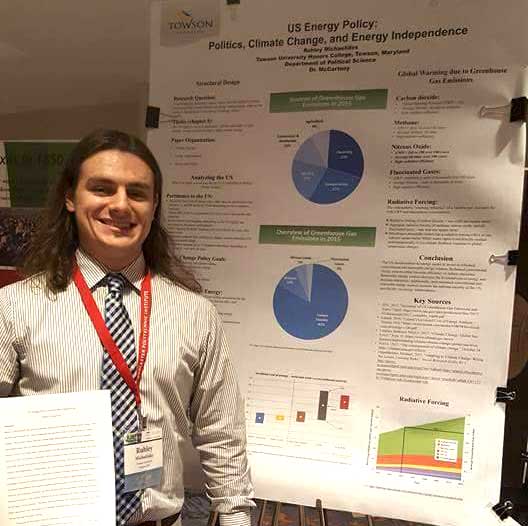
Sophia: Practice, practice, practice. Also, use pictures and easy diagrams. People do not like a lot of words on a board! Emphasize your main points and keep the visual presentation of the research straightforward. Also, come up with a two-minute “elevator speech”—people want to know your main points quickly without a lot of fluff.
Tim: Don't be afraid to defend your work against criticism, but don't dismiss the criticism either. In some cases, it might improve your work, but you should also use all of the knowledge you have gained from the research process to make the case for your argument in an effective manner. Also, be confident in your presentation. You have done a great deal of research on this topic, so you are now the expert. Take your knowledge and use it to give an informed and well-reasoned presentation.
What would you say to other students who are considering to apply to a conference?
Sophia: Believe in yourself, and apply right now!
Tim: Do it! There's nothing to lose by applying. Also, make sure to research a topic you are passionate about. In other words, don't just come up with a random research proposal because you want to spend a weekend in Atlanta. Writing a research paper is a lot of work, but if you care about the topic, it won't seem like work at all, and presenting your poster will be a very rewarding experience. I would encourage every honors students to apply for a conference like this. You will learn a lot, meet some interesting people, and have fun in a new location like Atlanta.
Are you interested in presenting your research, independent study, thesis, or project on a national stage? Submissions for the 53rd-annual NCHC conference in Boston, Massachusetts, will be available in fall 2018.
